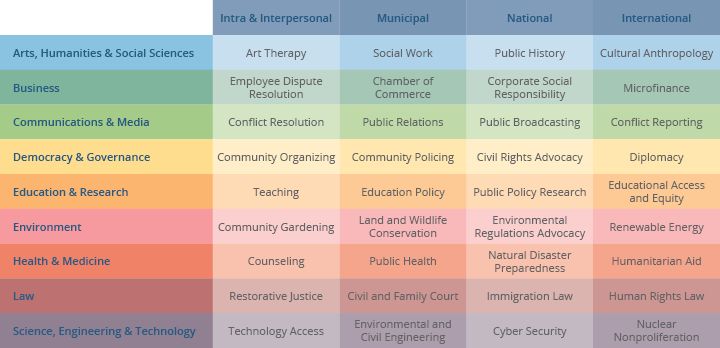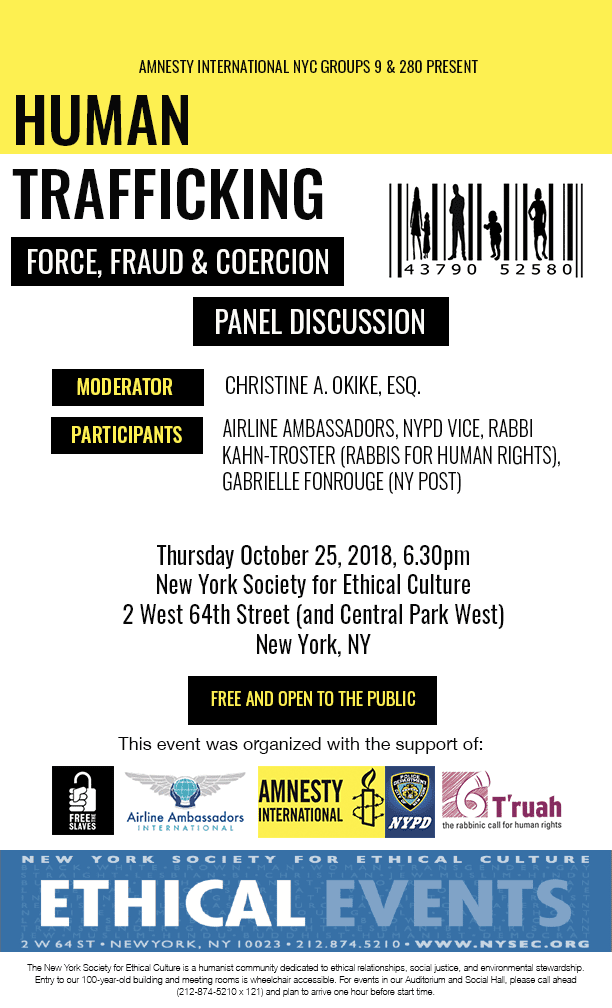When I was first applying to college, it was an internal struggle trying to decide what I would major in and then what I would do with that degree. I started as many do, a communications major; but peace studies was always in the back of my mind. I knew I would either do a double major or a minor; I was certain it was going to be part of my education. After one semester, I knew communication was not for me and I quickly registered for all peace studies classes my second semester. It is safe to say that was the best decision I made. I was quickly immersed in courses that I truly cared about. I found them interesting and felt my knowledge expanding at a rapid pace compared to what I was experiencing the semester prior. I was happier because I knew that this was what I wanted.

I did have the anxiety that most get when becoming a peace studies major; the “what am I supposed to to do with this degree?” fear. But the truth is, in my time of pursuing this degree I have learned that like many undergraduate degrees, you can truly do anything. I was simultaneously working on my political science degree, making me feel only more confident in my future. I have come to learn so many things about our world, but time and time again my interest has circled back to refugees. Both my parents are immigrants, with my mother from Poland and my father from Palestine, and so I have always been immersed in that world and seen the suffering that people endure while trying to escape those unfortunate realities. So to me, it always made sense to strive to help those people
 .
.
Naturally I have kept up with current conflicts, ones that produce mass amounts of refugees and the refugee crisis in general. This has led me to stumble upon several agencies and organizations that do such work, both on an international scale and a more local one. I have come to understand in this time that important work does not always have to be done Internationally. I always thought to make big change I had to work for the United Nations or have a high position in government. But the truth that I have come to believe is that there are so many ways to make just as important change. In my opinion, some of the most effective change happens on a smaller scale. The way that I see improving people’s lives in the best way possible is to be able to form connections, and truly provide them with what they need, not what we think they need.
What I have also come to understand is that you can get involved anywhere, even in your backyard. There are opportunities just around the corner to become part of that change you want to see. It is not always the easiest work or position to get, but it is there to try. And it is important to try everything, not just the things you think you are interested in. Because just as important as it is to know what you like, it is equally as important to know what is not for you.
My understandings and goals have shifted over the years, I have continued to learn and gained the skills to be a critical thinker leading me to pursue a career wherever I want. Peace studies has given me a skill set that has taught me how to think and to be adaptable, rather than a specific skill that will excel in one place. My meetings with the career center have validated those points, telling me that I can really apply anywhere and try anything. That is what I wanted from my college degree, I wanted to be able to graduate and do anything, not be tied down. There are endless possibilities!
There are endless possibilities!
I want to feel good about what I am doing. I think that what this career path has, is people who are passionate. Everyone I have met through peace studies has always really cared about their niche subject area and that is very empowering. While I have learned a lot, I know there is always room for growth. That anxiety still remains, wondering where I will end up, but I no longer fear it won’t be anywhere; I know that there is something out there for me. Wherever I end up, I will always be a peace studies major, instilling what I learned into everything I do. So yes, peace can be a profession, without a doubt; peace can be any profession. At the end of the day, everyone should strive to promote peace.





 “Hollywood and the media have created extreme and often dangerous stereotypes about people from the MENA region and Arab world. Therefore, we choose to highlight stories and work with creators or brands who are actively breaking these stereotypes by diversifying the range and perception of Middle Eastern and North African people. Our goal is to be a bridge between cultures by honoring the complexities, betweenness, and humanity of people from the MENA regions or diaspora.”
“Hollywood and the media have created extreme and often dangerous stereotypes about people from the MENA region and Arab world. Therefore, we choose to highlight stories and work with creators or brands who are actively breaking these stereotypes by diversifying the range and perception of Middle Eastern and North African people. Our goal is to be a bridge between cultures by honoring the complexities, betweenness, and humanity of people from the MENA regions or diaspora.” 



 world. He speaks Serbo-Croatian, French, and English. His journey of interest in the Middle East began from learning the negative consequences of foreign rule over the Balkans in school growing up. He researched primarily focused on Europe at first and became more interested in the Middle East after 9/11.
world. He speaks Serbo-Croatian, French, and English. His journey of interest in the Middle East began from learning the negative consequences of foreign rule over the Balkans in school growing up. He researched primarily focused on Europe at first and became more interested in the Middle East after 9/11.



